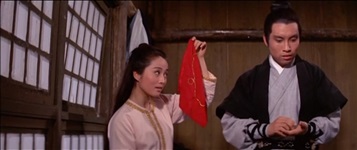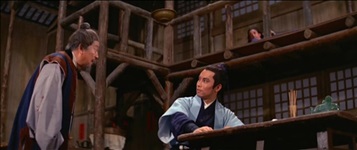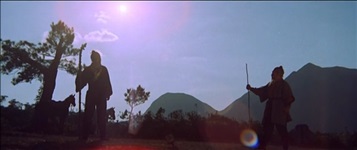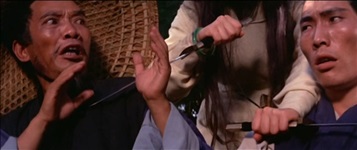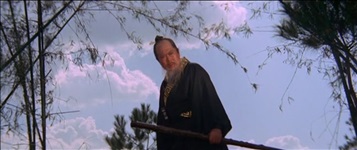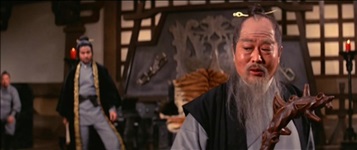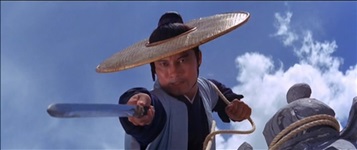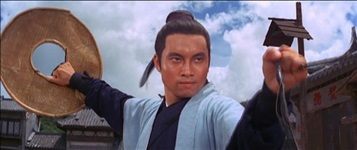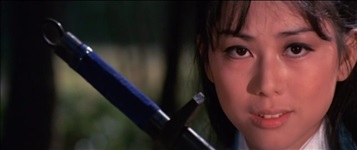Twelve Gold Medallions (1970)
.jpg)
Woo hoo! I have a new favourite Shaw Brothers movie
In times past, China was being invaded from the North and a traitorous prime minister decided to betray his country, sending out twelve gold medallions to his general telling him to stop fighting. Various patriotic heroes heard of the plan, and set out to stop the messengers carrying the medallions. Of most interest to us, as he's the main character, is chivalrous and supremely talented swordsman Yueh Hua. His patriotic honour will bring him into conflict with, amongst many others, his fiance and his own sifu.
I'd never heard of THE TWELVE GOLD MEDALLIONS until Celestial released it, and I'd never heard of its writer director Ching Gong (Cheng Kang) either. I guess this movie has slipped under the radar of the west until now, but what better way to discover a lost masterpiece than on a beautifully restored Celestial DVD
The presence of Yueh Hua immediately brings to mind King Hu's Come Drink With Me, and this thought lingers because it is clear that King Hu's groundbreaking wuxia work was a big influence on TWELVE GOLD MEDALLIONS. It could easily have been a lost King Hu movie in many ways, and if so it would have turned out to be one of his best - even approaching the greatness of his masterpiece A Touch Of Zen.
Ching Gong was more prolific as a writer than a director, and the strong script is a large part of this film's excellence. Wuxia movies are always full of intrigue and chivalry, and this film is no exception. The script is unusually rich and sophisticated though - and so much tighter and better thought out than any wuxia movie from the 90's I can think of. I think the best movies most often happen when writer and director are the same person, as it brings a unity of purpose and vision to the project. Obviously this is only true when the one person is a good writer and a good director, though, and Ching Gong shows great talent in both areas here.
Yueh Hua is a great leading man, looking very much the part of a hero and getting well inside the skin of his character. In this movie he's surrounded by a strong cast, most notably leading lady Chin Ping - rapidly becoming my swordswoman of choice. Everybody gives a good performance in the film, which usually means the director is doing a good job.
I don't know how involved Ching Gong was in the cinematography, but whoever it was did a great job. The film is full of unusual and effectively composed shots, and the camerawork is nothing short of visionary in the action scenes. The kind of action camerawork that King Hu pioneered is present in great form here - the shooting and editing is well ahead of its time. Some of the shots and movements are just mindblowing, and would fit pretty well into a Tsui Hark film.
As well as being beautifully filmed, the action is very well choreographed. There's a lot of wirework - far more than I've seen in a film of this age before, and some really intense battles with swords and other weird and wonderful weapons. The movie is surprisingly bloody for its age, though Shaw Brothers films never really moved past the 'bright red paint' concept of blood. Colour scheme aside, there are some pretty gory moments though, which adds to the impact of the action scenes. There are a lot of action scenes throughout, by the way.
Apologies for the use of many superlatives once more in this review, but I was seriously impressed by the film. Factoring in the fact it was made in 1970 makes it especially impressive, as it blows away many wuxia films from subsequent years. Actually, I would rate this as one of the best wuxia films I've seen.
Strongly recommended... every fan of Hong Kong cinema should see this film!
Cast
Crew
| Director | |
|---|---|
| Action Director | |
| Production Company | |
| Writer |
